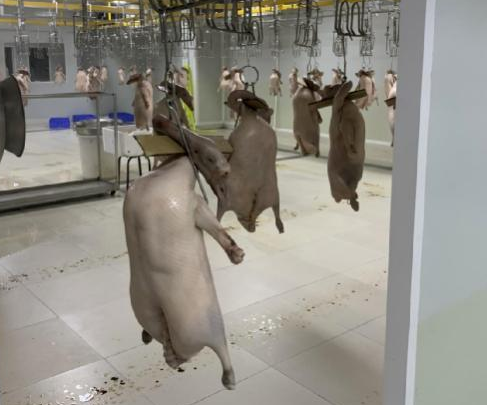Deliciousness also has an 'identity'; RFID realizes traditional Cantonese delicacies.
Release time:
Dec 09,2024
RFID technology is one of the promising technologies of the 21st century. In recent years, with the continuous development of RFID technology, its applications have become increasingly widespread, penetrating into various aspects of people's daily lives.
According to data statistics, the national consumption of goose meat is approximately 700 million each year, with Guangdong Province consuming at least 170 million. The reason Guangdong can consume nearly a quarter of the country's geese each year is undoubtedly due to the contribution of the traditional famous dish - Cantonese roast goose.
The production process of Cantonese roast goose is extremely complex, involving more than twenty production steps and a combination of several types of stuffing. Any single step can affect the taste of the roast goose. We are dedicated to providing embedded application solutions in the RFID industry, possessing integrated capabilities in production, research and development, and solutions. Applying RFID technology to track the food processing process is a customized solution based on customer needs and is a first attempt in food processing.
A well-known roast goose chain brand in Dongguan, Guangdong, has adopted RFID technology in the production process to ensure that every serving of roast goose maintains consistent deliciousness while keeping pace with technological advancements. Before roasting, each goose must undergo more than twenty pre-treatment processes, and ensuring the integrity of these pre-treatment processes is key to achieving great taste.
By assigning an RFID tag to each goose awaiting processing during the pre-treatment process, akin to an ID card for recording processing information, we ensure that every step is documented. After each process, information is written into the RFID tag to guarantee that every goose completes all pre-treatment steps, ensuring that every roast goose has the same delicious flavor.
Combining existing relevant technologies, sales, and product experiences while establishing an adaptive, resource-efficient, and ergonomically designed smart factory is the goal of Industry 4.0 worldwide. Applying RFID technology for product identity confirmation in production processes across various industries ensures production quality and efficiency analysis while improving manufacturing processes to increase efficiency, reduce costs, and enhance profits.
RFID technology has garnered attention due to its characteristics such as long-distance reading, high storage capacity, compact size, diverse shapes, pollution resistance, and durability. It is a key technology for future IoT applications and Industry 4.0 (smart manufacturing, logistics, healthcare, agriculture, food supply chain) and will inevitably develop towards diversification.
Applying RFID technology in the roast goose production process demonstrates the diversification of RFID technology applications. Using high-temperature resistant RFID tags made from food-grade PET material allows for full traceability throughout the roast goose production process while ensuring the flavor of Cantonese cuisine and making the production process increasingly standardized.
RFID antennas are essential hardware for RFID technology applications. With the rapid development of RFID technology, antennas have also advanced quickly. The goal of an antenna is to transmit maximum energy in and out of chips; how to match antenna design with free space and its connected tag chips is a limiting factor in antenna development.
The design and manufacturing of RFID tag antennas are influenced by application scenarios as well as by the shape and physical characteristics of objects identified by antenna properties. They are also affected by surrounding objects and environments; this represents an important direction for research in RFID technology as it diversifies its applications.
With advancements in RFID technology, more new RFID products are being manufactured and applied effectively. In the future, the development of RFID electronic tags will trend towards being environmentally friendly and diversifying raw materials to meet the application needs of different industries.
Related News
Apr 28,2025
With the help of RFID, the children's clothing factory's revenue increased by 50%.
Dec 09,2024
Deliciousness also has an 'identity'; RFID realizes traditional Cantonese delicacies.
Dec 09,2024
Dec 09,2024
RFID Jewelry Smart Store Management
Dec 09,2024




